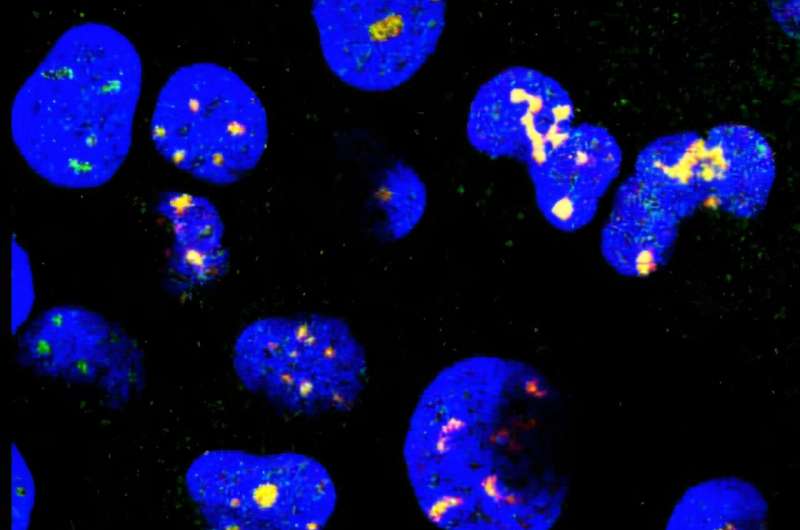“Our research is painting a picture where dysregulation of nuclear speckles is important for neuron degeneration in the context of many diseases,” said senior author Bokai Zhu, Ph.D., assistant professor in Pitt’s Department of Medicine and the Aging Institute. “The concept of rejuvenating nuclear speckles to treat these diseases is completely novel, but I believe it’s the next frontier of neurodegenerative research.”
Nuclear speckles are structures within cell nuclei that regulate proper protein production, folding and degradation—a balance known as proteostasis. Zhu’s previous research found that nuclear speckle shape affects function: More spherical speckles were linked with worse proteostasis than irregularly shaped ones.
Hypothesizing that drugs to make nuclear speckles less round could treat proteinopathies, Zhu’s team screened hundreds of FDA-approved drugs. When they measured the effects on nuclear speckle sphericity, one stood out: pyrvinium pamoate, originally approved for treating pinworm infections.

